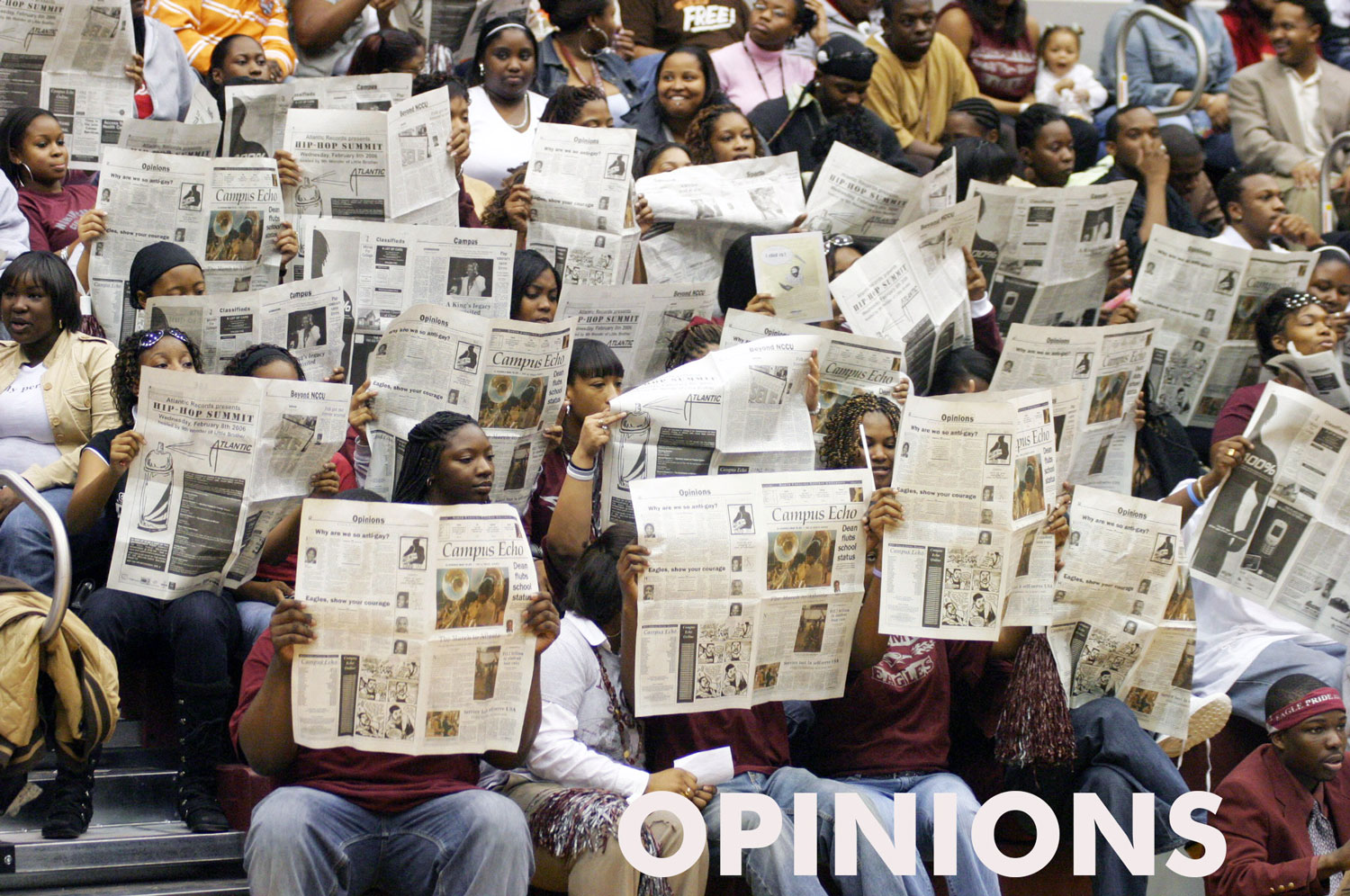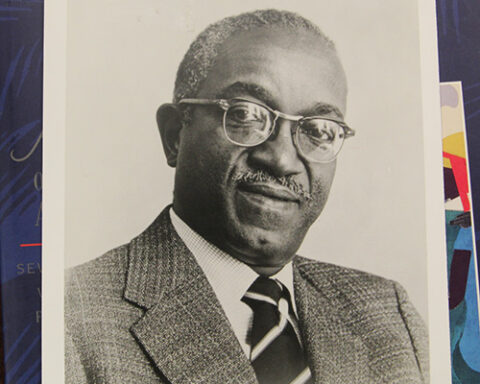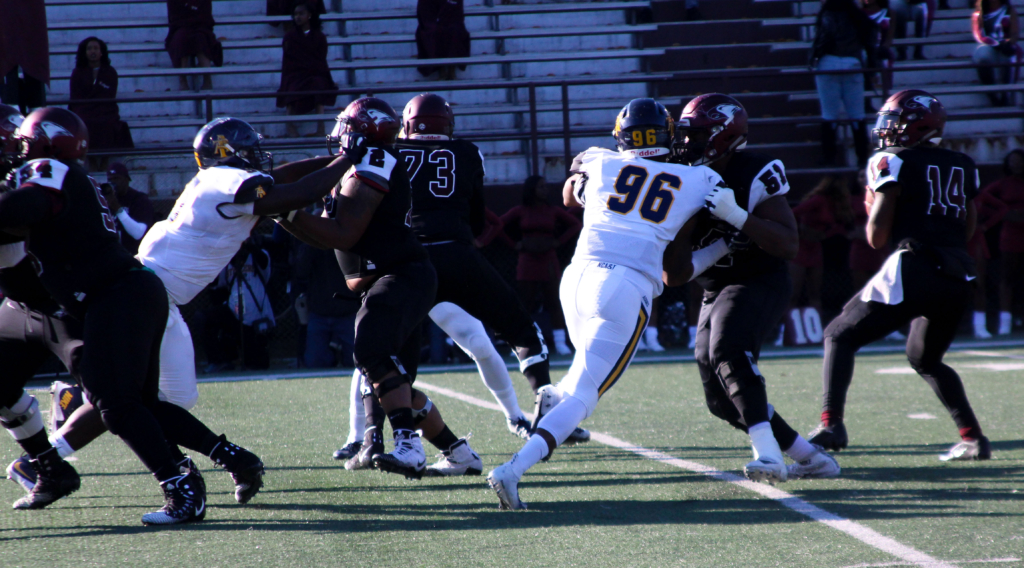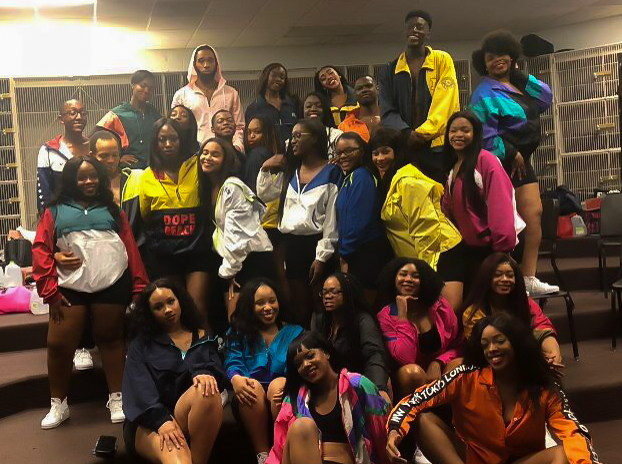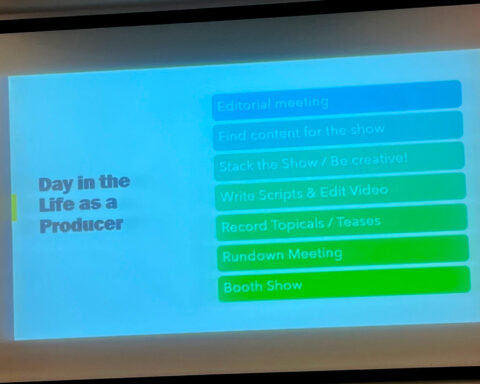The first visible step of N.C. Central University’s move to set their Millennial Campus expansion plan in motion appeared in late August on the corner of Fayetteville and Lawson streets where a red and yellow yard sign denoted the location of Historic Preservation Commission Case COA1800043: 1710 Fayetteville St., set for demolition.
The .172-acre lot with a total land value of more than $66,000 is technically the second land parcel off the corner of E. Lawson and Fayetteville, though the context map found in the Certificate of Appropriateness application provided by Facilities Management Associate Vice Chancellor Jonathan Peeler on behalf of the university displays structures on the exact corner parcel at 1712 Fayetteville St. (also owned by NCCU by way of the state) that are no longer standing.
Site plans provided show that the green house built in 1916 that will make up the bulk of the demolition process is one-and-a-half stories tall and contains four bedrooms—two upstairs, two downstairs—separate living and dining rooms, a kitchen and one full bathroom. There is 15 feet separating the front of the house from the edge of the parcel to the right at 1708 Fayetteville St. owned by a woman named in the site plan as Barbara J. Judd.
In his first of three memorandums sent to Durham city planner Karla Rosenberg in June 2018 titled “Project Intent and Background Statement,” Peeler explains that the property in question was bought by NCCU in 2010 with the sole purpose of being demolished in association with the university’s original 2007 Master Plan.
Now, eight years later, the university has come to the decision that the property will need to begin the demolition process “before it becomes a life, safety and security issue to our community.”
Peeler’s third and final memorandum to Rosenberg, “Historic Properties Local Review Criteria Compliance Statement,” addresses the question of whether or not demolition is truly necessary.
“The University has considered and exhausted alternatives regarding other options of salvaging or restoring property located at 1710 Fayetteville Street,” Peeler said, adding that the building had been considered for potential student or support staff housing. “Due to the size and proximity of the home to the busy street at Fayetteville, security concerns, lack of adequate parking (and) excessive cost benefit of any potential renovation, it was not deemed beneficial to renovate the property and restore it.
“We ask that the 365-day delay be removed for this review and demolition process,” Peeler continues at the end of the memorandum. “This building is an eye-sore to the surrounding community, presents safety and security challenges to the campus community and the general public and also poses a potential fire safety hazard with close proximity to other homes. We would like to demolish the property to be able to proceed with campus expansion plans and aid in the improvement of the local community. The building has no special significance or value toward maintaining the character of the district.”
According to the city’s Certificate of Appropriateness report, the delay can only be waived if it causes the property owner to “suffer extreme hardship,” will cause them to be “permanently deprived of all beneficial use of or return from such property by virtue of the delay” or if existing structures on the property have “no special significance or value toward maintaining the character of the district.”
The motion to approve the demolition of 1710 Fayetteville St., along with the removal of the yearlong work delay, was approved 5-1 on Aug. 14. A demolition permit has yet to have been processed by the Durham City-County Inspections Department. While the university keeps the campus and community focused on the new student center—which, to be fair, I’m very excited for—there are no public announcements for the progression of the rest of the Millennial Campus expansion plan.
I’m aware that anyone with an internet connection can go to the Capital Project Management page within the facilities Management section of the website and see what the university is and isn’t updating on campus, but the vast majority of the people who are affected by the construction have no idea the extent to which NCCU plans to redevelop.
If you attended either of the two informational sessions about the new campus center, then you know that it needs more land than just the commuter lot behind the current union to thrive. The plan requires that the 500 block of Cecil Street behind the lot be bulldozed as well. I suppose that’s fine, since the state already bought all 27 parcels of land from their owners, but what about Lawson Street, whose residents will be bought out to the west all the way past the BRITE lot so we can have three new parking decks, new arts and STEM buildings, secondary physical and central receiving plants and up to Alston Avenue for two more decks, a convocation center and arena space and a combined hotel and conference center?
But we already have an arena, you say. That master plan must be old. And you’re half-right; we do have an arena… for now.
The full buildout lists has an X over the current site of both McDougald-McLendon Arena and the tennis courts behind it with only a “new academic building” listed in its place. Ignoring the fact that athletics doesn’t push tennis as much as their revenue (i.e. football and men’s basketball) and they might see the subsequent low turnout as a justifiable reason to trash the courts in the name of “progress,” didn’t we just turn McDougald-McLendon into an arena from a mere gym less than four years ago? What’s wrong with it that it not only needs to be moved up to the northeasternmost point on campus, far away from students who pay fees every semester to support athletic programs, but that the original building needs to be demolished?
At the very root of it, I guess I’m asking at what point do we actually start caring about the community that raised us up?
The Fayetteville and Lawson neighborhoods that we walk down every year at homecoming are the same ones that NCCU is turning into yet more buildings. I understand that we’re growing,but with a 67% acceptance rate in 2016, there’s really noway we wouldn’t be.Gentrification is a term commonly used to describe white people moving into“cheaper” neighborhoods and pushing the typically disenfranchised minority populations out. NCCU, as illustrious as they make themselves sound, is doing the same thing to the remnants of Black Wall Street. There’s really no difference between overpriced studio apartments, trendy bistros, and whatever is in store for the verdant greens in the years to come.

